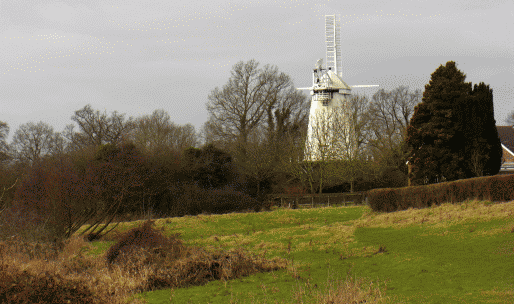Matilda Mother
From Wikipedia, the free encyclopedia
| "Matilda Mother" | ||||
|---|---|---|---|---|
| Song by Pink Floyd from the album The Piper at the Gates of Dawn | ||||
| Released | 5 August 1967 | |||
| Recorded | February 1967 | |||
| Genre | Psychedelic rock | |||
| Length | 3:08 | |||
| Label | Columbia/EMI (UK) Capitol (US) | |||
| Writer | Syd Barrett | |||
| Producer | Norman Smith | |||
| The Piper at the Gates of Dawn track listing | ||||
| ||||
Information
The lyrics quote fragments of fairy tales as read from a book to the singer by his mother ("read(ing) the scribbly black", referring to writing in a book as a child sees it), and in the chorus he implores her to "tell me more". The song also laments the loss of childhood, indicating these narrations are being recalled years later, and notes that "the words had different meaning", suggesting the child may have misinterpreted the stories at the time.[original research?]The song begins with an unusual bass and organ interlude. Roger Waters repeatedly plays the B on the 16th fret of the G-string by varying the lower note from D to F sharp on the D string. Unlike many older beat and pop songs, the guitar rarely plays chords, and most unusually for Western music, Richard Wright provides an organ solo in the F# Phrygian dominant scale with a natural sixth instead of its typical flatted counterpart. The song ends with a simple E mixolydian-based waltz with wordless vocal harmonies of Richard Wright and Syd Barrett.
Barrett originally wrote the song around verses from Hilaire Belloc's Cautionary Tales, in which a series of naughty children, including Matilda, receive their (often gruesome) comeuppance. He was forced to rewrite and re-record the track when Belloc's estate unexpectedly denied permission to use these lyrics.[3]
On the Masters of Rock compilation album, the song was misspelled "Mathilda Mother".
Personnel
- Syd Barrett – guitar and vocals
- Richard Wright – organ and vocals
- Roger Waters – bass
- Nick Mason – drums and percussion
Alternative versions
A previously unheard rendition has been released in a 40th anniversary reissue of Piper at the Gates of Dawn; parts of this version's lyrics are also from Belloc's Cautionary Tales, i.e. Jim and Henry King, whereas the chorus is the same as in the standard version.References
- ^ Strong, Martin C. (2004). The Great Rock Discography (7th ed.). Edinburgh: Canongate Books. p. 1177. ISBN 1-84195-551-5.
- ^ Mabbett, Andy (1995). The Complete Guide to the Music of Pink Floyd. London: Omnibus Press. ISBN 0-7119-4301-X.
- ^ "Syd's Fractured Fairy Tales". http://sparebricks.fika.org/sbzine16/books.html. Retrieved 2008-03-18.

No comments:
Post a Comment